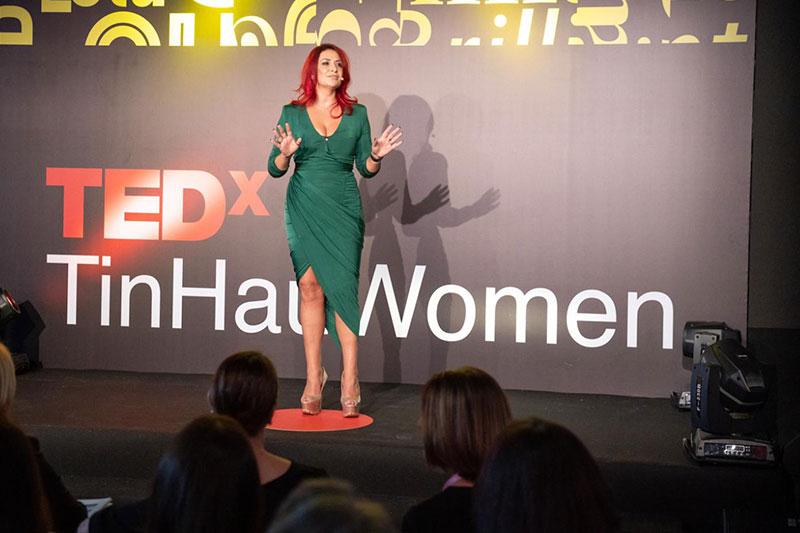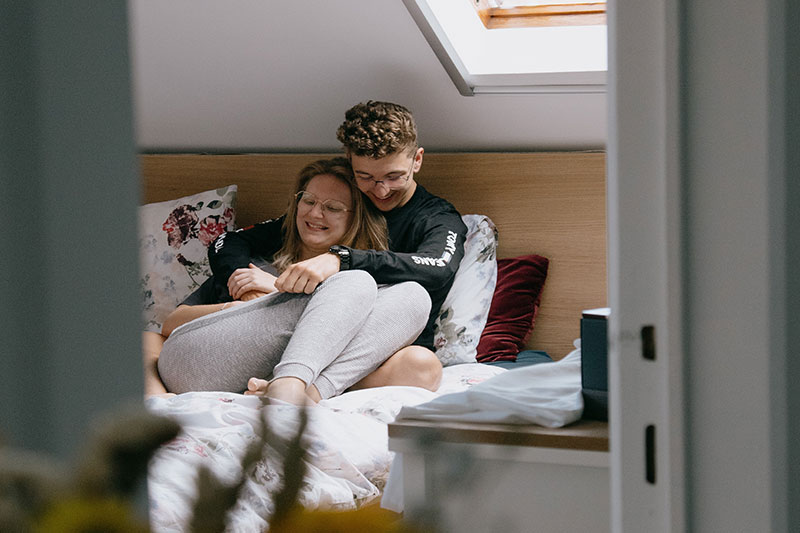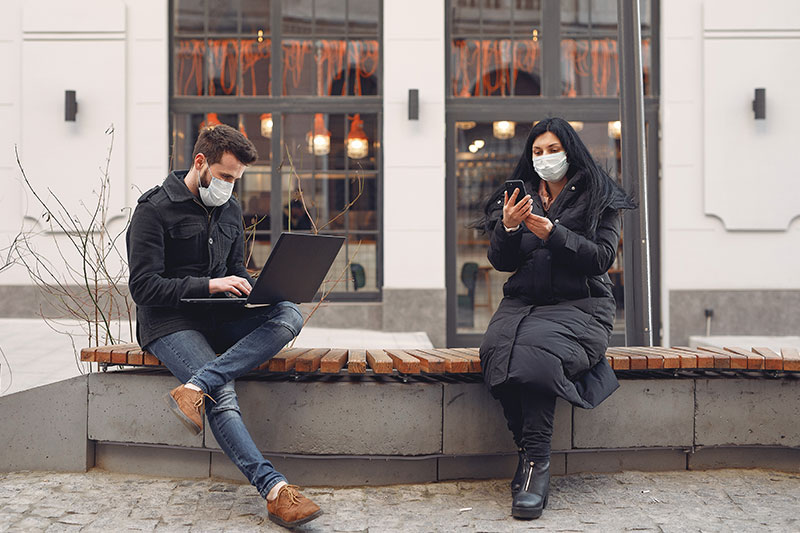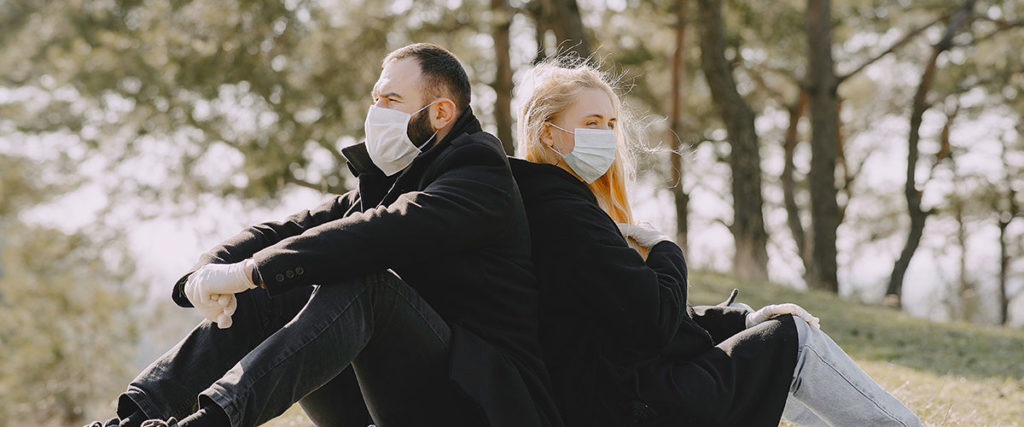Relationship expert Valentina Tudose talks about how COVID-19 has radically shifted all previous norms in love and dating – and how we can adapt.
It’s human nature to crave intimacy – to be smiled at, to be touched, and to feel protected. So what happens when a global pandemic hits, society comes to a halt, and we are told to minimise all forms of physical contact?
Well, relationship coach and TEDx speaker Valentina Tudose has a few thoughts to share. Valentina created her online relationship-coaching platform Happy Ever After after encountering many women in Hong Kong who were largely unsatisfied with their dating lives. For almost seven years now, Valentina has dedicated her platform to empowering women around the world, helping them gain confidence in creating deeper intimacy with their partners, resolve conflicts, and find the best version of themselves.
Here, Valentina delves into the effects of COVID-19 and quarantine on relationships, both new and old, and shares her top tips for maintaining a healthy, loving relationship while you’re stuck in self-isolation.

What’s the dating scene in Hong Kong like?
Hong Kong has a reputation for being the ‘graveyard’ of relationships. A very high rate of couples who move to Hong Kong end up splitting up because it’s quite a challenging city full of temptation. I always considered Hong Kong to be a very transient place – new people were always coming in and constantly ‘refreshing’ the dating scene.
How has COVID-19 changed this?
Recently, because of the pandemic, it’s become much more difficult to meet new people and many are facing very different challenges to before. Hookup culture was very prevalent in Hong Kong for a period of time, where people would just meet on Tinder, exchange a few messages, then jump straight into physical intimacy. The silver lining of COVID-19 is that people are actually going back to ‘traditional dating styles’. People are being more cautious about social distancing and meeting strangers, and what I’m noticing is that we are more willing to delay gratification. It’s brought back the need to invest effort into relationships, allowing couples to create intellectual and emotional intimacy.
What sort of challenges has it presented for couples?
Over the last six months, many couples have had to spend much more time together at home in a restricted environment, putting a lot of stress on relationships. It’s forced people into a deeper level of intimacy that they weren’t used to before. Some couples are discovering that they don’t actually know each other. Suddenly there’s no room to escape, and a lot of hidden conflicts that had been simmering under the surface are coming up. Unfortunately, a lot of people have also been put into difficult living situations. Domestic violence is one of the hidden roots in many relationships these days. People feel threatened by their partners, and many are experiencing emotional and verbal abuse. It is very confrontational and can be really hard to get out of a situation where you have a narcissistic, abusive partner. There’s a lot of toxicity involved and many people may even be unaware that they are victim to subtle forms of psychological abuse.
What would be a healthy, productive way to resolve conflicts?
Understand that every conflict happens because there is an unmet need. For example, let’s say your partner arrives home late. You jump into an argument that they didn’t try to send a text or notify you in advance. Most couples are unable to solve the actual issue because they don’t dig deep enough to get to the real problem – their actions made you feel unimportant and not prioritised. We are biologically wired to feel attacked, so we get defensive and might overreact to a level of annoyance or anger that isn’t justified in the given situation. People should become more aware of their own ‘triggers’, whether they were caused by their childhood, past trauma, relationships, and so on. If people took more responsibility for their reactions, and did a little bit more introspection about triggers, then they would be able to learn how to listen. Listen to understand, and see what your partner is really trying to tell you.

Given global travel restrictions in place, how has this impacted long-distance relationships?
Long-distance relationships only work if people are willing to put in the effort to maintain deep connections. For a lot of couples, they haven’t been able to meet or have any physical contact in six or more months. The travel ban has caused many relationships to fizzle out and this is because there wasn’t enough physical bond between them to maintain intimacy and emotional connection. The absence of touch affects their ability to stay bonded, connected, and committed. It really depends on the level of intimacy that a couple achieved before restrictions came into place, and how good they are at communication.
Any advice on how to deepen emotional connection without being in physical proximity of one another?
When you’re talking to someone at length, use the opportunity to go into deeper topics like their goals, passions, past failures, and mistakes. When vulnerability comes into play and we break down our walls, we’re able to create emotional intimacy and get to know each other better before physically acting upon chemistry.
Building upon that, advances in technology have created many more opportunities for online dating – an industry now valued at USD 6 billion in sales. Given the pandemic, how would you advise singles in staying safe online?
The one big danger with online relationships is that it’s a haven for catfishing. Catfishing is the practice of creating fake profiles and pretending to be someone completely different. Especially in the first couple months of quarantine and lockdown, the number of catfishes on Tinder and Bumble were explosive. My advice is that if it feels too good to be true, that’s probably because it is. Everybody has an online digital profile these days like LinkedIn, Facebook, or Instagram. Try to have a visual of the person you’re talking to, to make sure they are who they say they are.

What are some common relationship problems that you’d caution readers against?
The problem many couples have is going for immediate gratification. As humans, we need to first build intellectual intimacy to really get to know one another. To me, a balanced relationship has the perfect combination of ‘sameness’ and ‘otherness’. The first thing we look for in partners are things we have in common like shared interest or values. Once we have that foundation, then we look for mystery and differences in things they can potentially teach us. Sometimes we indulge too much in the ‘sameness’ that we don’t spend enough time exploring potential deal breakers. Another big lesson we have to learn is how much energy, effort, or dedication we should put into a relationship. We are very often in a chaser/runner dynamic – if one person puts too much effort, the other one will start to pull back.
What about for long-term couples? Any tips for keeping the spark alive?
So again, this is about cultivating that mystery and ‘otherness’. Sparks die when a couple become too familiar with each other and enter this phase where they start to take each other for granted. Most people are creatures of habits, and relationships tend to very quickly turn into a routine. Desire resides in mystery, so for the spark to continue, you need to want to discover something new about the other person.
Since the outside world is shut down, people are having to face these intimacy and communication issues upfront. There’s a quote from Marcel Proust, where he says, “The real voyage of discovery consists, not in seeking new landscapes, but in having new eyes.” It’s really about a shift in perspective – looking at each other as if you’ve never seen each other before or talking about things you’ve never explored. I think this process can be beautiful, rediscovering the love you have for yourself and your partner.





